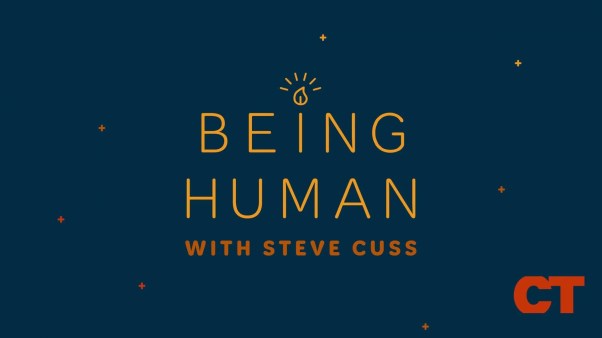Money stands right alongside political strife and racial tension as one of the most challenging and complex realities I address from the pulpit as a local church pastor. This is true for many if not most church leaders. We often experience an intrinsic anxiety when it comes to the intersection of formation into Christlikeness and people’s finances.
We find it difficult or uncomfortable to ask people to give to the church for a number of reasons: fear of failure or rejection; fear of being that pastor or that church that’s always talking about money (particularly to those who are newer to our communities); and sometimes just simple, naive idealism, believing that money isn’t an issue for our people or our church. This evasion mirrors the culture at large, where people would rather talk about religion, politics, and even death than money, and over 40 percent of married Americans don’t know their spouse’s income—even though financial discord is one of the top predictors of divorce.
Pastors and church leaders long to help people become more like Christ, but we often limit that longing to the outer peripheries of money. The problem is that the Bible seems to care a great deal about that very intersection of formation and finances.
Consider these passages: “No one can serve two masters. Either you will hate the one and love the other, or you will be devoted to the one and despise the other. You cannot serve both God and money” (Matt. 6:24). “For the love of money is a root of all kinds of evil. Some people, eager for money, have wandered from the faith and pierced themselves with many griefs” (1 Tim. 6:10). “Keep your lives free from the love of money and be content with what you have” (Heb. 13:5).
Despite our anxieties, there is a way for pastors and church leaders to preach and teach about finances—especially giving—with confidence and conviction. More importantly, such work is not optional, especially in a culture like ours where money and wealth loom large as golden calves worshiped by the masses.
How We’re Hardwired
Ninteenth-century economist John Stuart Mill once famously posited that human beings are “creatures that long to obtain the greatest amount of necessaries, conveniences, and luxuries, with the smallest quantity of labor and physical self-denial.” In essence, Mill believed that people inherently desire maximum benefit for minimal sacrifice.
But John Stuart Mill was wrong. There is more to the story.
A theology of imago Dei tells us that human beings are made in the image of our abundantly generous God. We bear the image of a God who “give[s] good gifts” to us, who is the source of “every good and perfect gift,” who “did not spare his own Son, but gave him up for us all” (Matt. 7:11; James 1:17; Rom. 8:32). Made in his image, human beings are in fact hardwired to be generous.
This is not to say that generosity always comes naturally or easily to us! Sin creates chasms between the image we are to bear—God’s—and the images we are most tempted to bear—the world or the flesh, in the words of the apostle Paul (Eph. 2:1–3).
When my daughter was very young, we tried to teach her generosity in small and simple ways. Any time there was food on the table that we knew she loved, we’d ask her to share. Almost always, she’d immediately shove as much food as possible into her tiny little mouth, fearful of the thought that she might have to give away even a small bit of something she cherished. Rather than reprimanding her, we learned quickly that the best way to spark generosity in her was to reshape her imagination in order to help her see that there is a deeper joy and surprising freedom in giving rather than grabbing.
As pastors, we have a similar task: cultivating and calling forth generosity from our people. We do so fully aware of the common human temptation to love and serve money, but also in full confidence that God created each of us with generosity in mind.
Confidently Cultivate Generosity
In order to confidently cultivate generosity in the communities we serve, pastors and church leaders must begin with a firm conviction that generosity is the path to freedom. Sadly, much of our pastoral reluctance to talk about money derives from a reverse understanding of basic human design. For a variety of reasons, we’ve come to believe that asking people to give is a way of saddling them with added burdens or, even worse, guilt.
When our requests for giving are done poorly, out of desperation, we run the risk of guilting people into giving, which is both unbiblical and toxic. But when pastors and church leaders do the work of excavating the true gift that generosity offers, we can speak to our people with resolved confidence that the thing which truly enslaves people isn’t generosity but greed.
We read in Ecclesiastes 5:10 that “whoever loves money never has enough; whoever loves wealth is never satisfied with their income.” Secular science supports this reality. The late writer Mark Fisher termed the phrase depressive hedonia, which he describes as “an inability to do anything else except pursue pleasure. There is a sense that ‘something is missing’—but no appreciation that this mysterious, missing enjoyment can only be accessed beyond the pleasure principle.” A love of money and the act of hoarding as much of it for ourselves as possible shackles us to this futile pursuit.
On the other hand, research is showing that when people give generously, parts of the midbrain are activated—the same parts associated with processing rewards and thus releasing dopamine, the “happy” chemical. Humans are, indeed, wired for generosity.
In the first century, Ephesus was a wealthy city and an epicenter for trade and commerce at the time. Paul instructed Timothy, who lived there, to
Command those who are rich in this present world not to be arrogant nor to put their hope in wealth, which is so uncertain, but to put their hope in God, who richly provides us with everything for our enjoyment. Command them to do good, to be rich in good deeds, and to be generous and willing to share. In this way they will lay up treasure for themselves as a firm foundation for the coming age, so that they may take hold of the life that is truly life. (1 Tim. 6:17–19)
For all those with the ability and means to give, whether little or much, generosity is the way to “take hold of the life that is truly life.” In opening our hands to give, we open our hands to receive. We relinquish greed and scarcity and in return receive freedom and life. Generosity is liberation.
Don’t Ask. Tell.
One of the primary reasons why pastors and church leaders cringe at the thought of preaching and teaching on finances is because we mistakenly believe such talk essentially boils down to asking for money. But if and when we arrive at a settled confidence and conviction that generosity is actually liberation, our approach shifts completely. We need not ask for anything. Instead, we invite. Specifically, we invite people into freedom. If we truly believe that “godliness with contentment is great gain,” (1 Tim. 6:6), then we are offering people an opportunity to gain, rather than merely pleading with them to give.
To do this pastorally and responsibly, we can stop asking and begin telling. To be more specific, we must become storytellers. In most churches on most Sundays, the call to give is neatly packaged into a rote announcement about taking the offering and ways to give online. Such an ask is not inspiring or motivating. It’s technical and mechanical. It can often feel like a filler in the worship service. In contrast, the most effective invitations to give that I’ve seen, both at our church and other churches, are always embedded in a compelling story.
Asking people to give in order to pay salaries and keep the lights on will rarely move them to action. Even a quick verbal acknowledgement of some of the ministries in the church doesn’t quite do it. Storytellers hone the skill of revealing a significant problem, offering an effective solution, and celebrating the resolution, with vivid detail and specificity.
What are the specific problems we long to see undone, in our church and in our community? What are the specific solutions we believe God is asking our church to offer the world? What does it look like when God moves through us and brings resolution? This is a vision-based approach to storytelling that can guide us as we invite congregants to give generously.
Angelicah is a teenager at our church who attends a public high school across the street. Daily she is faced with the challenge of difficult questions about faith from friends. Because of the impact our kids and youth ministries have had on her, she’s been able to meet this challenge and serve missionally on her campus.
Tom is an older man at our church. Recently, he and his family were faced with a difficult personal situation. He was listening to a sermon one Sunday and the content of the teaching collided with the personal situation in such a divine way that he couldn’t help but see that God was moving in his life and circumstance.
These two examples are the sorts of stories we tell often at our church, always seeking to directly connect financial generosity to work God is doing in and through our church and its ministries. And while there isn’t a one-size-fits-all approach to vision-based storytelling, the raw materials for it are strewn all across the landscape of each of our church communities. They’re embedded in the big, small, and in-between stories of life change, transformation, healing, and hope in the people we serve. What we need is to live with eyes and ears open, watching and listening for the stories in our midst, and a readiness to share them with our people.
Sheer Gift
Most people believe that as wealth increases, generosity will follow suit. This is what Mark Batterson at National Community Church calls “the myth of when/then”: When I have a little more to give, then I’ll give more.
But generosity isn’t born out of abundance. Generosity is born out of trust—trust that God is in control, that it all belongs to him anyway, and that we are made in the image of a generous God. This is true of our own personal giving—and it is true of the generosity we seek to cultivate in our congregations. Brennan Manning once wrote,
While there is much we may have earned—our degree, our salary, our home and garden … a good night’s sleep—all this is possible only because we have been given so much: life itself, eyes to see and hands to touch, a mind to shape ideas, and a heart to beat with love. … This and so much more is sheer gift.
In an age of affluence, decadence, and indulgence, the pastoral responsibility to first embody generosity and then compellingly invite people to the same is of utmost importance. It is a matter of formation and freedom.
Jay Y. Kim serves as lead pastor of teaching at WestGate Church. He’s the author of Analog Church and the forthcoming Analog Christian, and lives in the Silicon Valley with his family.











